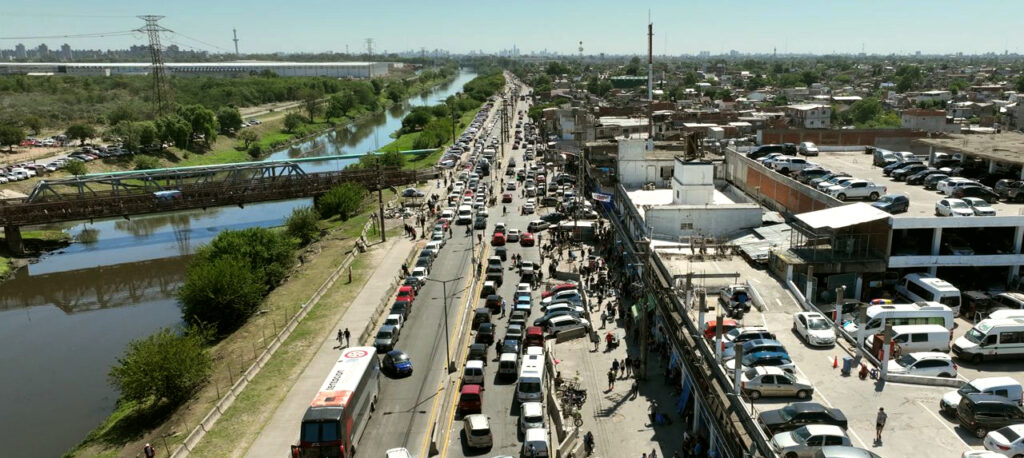In the context of Nai010’s second edition of Informal Markets Worlds, an atlas of informal markets throughout the world, m7red along with the editorial team have developed the “La Salada” entry. This comes as a continuation of the same entry developed for the first edition in 2015. Eight years of time have allowed us to repeat fieldwork and notes about a process that the Argentine economy has been going through. This time we’ve focused on the ways in which the COVID-19 pandemic and its quarantine affected and laid bare an economic development in which two things happen simultaneously: first, an unequal distribution of wealth, the effect of which is a growing increase of concentrated power and capital, and second, an always renewed potency for subsistence coming from the popular classes and from small entrepreneurs and merchants that uphold the lack of a collective economic and political project centered in production, development of local wealth, intelligent global positioning and a vision of divergent composition of territorial, cultural and natural potencies, one that can contain and balance the contradictions and existing differing temporalities.
From the project’s statement:
The aim of this project is to examine the spatial culture of informal markets as an arena of negotiation between multiple political demands, social actors and environmental constraints.
Bringing together more than 80 case studies from around the globe, the atlas highlights current fault lines between bottom-up social organisation and top-down political power. Through cartographies, visuals and texts, it identifies emerging informal market configurations such as border markets, post-conflict markets, container markets or hipster markets that demonstrate the changing relations between space and politics in a world of global connectivity.
This atlas is accompanied by the Informal Market Worlds READER, addressing the complexity of issues impacting on 21st century informality, while also opening up the debate about the scope of informality for instigating change.
Edited by Teddy Cruz, Fonna Forman, Peter Mörtenböck and Helge Mooshammer, and with contributions by Hou Hanru, Keith Hart, Jiang Jun, Lawrence Liang, MAP Office (Laurent Gutierrez & Valerie Portefaix), Gayatri Chakravorty Spivak, Vyjayanthi Rao, Ananya Roy, Saskia Sassen, AbdouMaliq Simone, Ignacio Valero, Matias Viegener and others.

